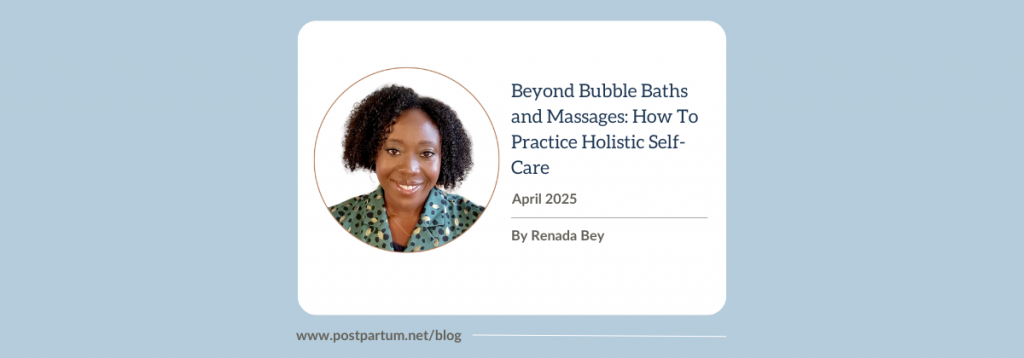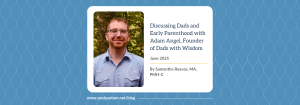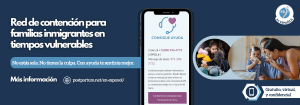By Renada Bey
I became a mom for the first time in a way I didn’t and couldn’t foresee. I was thrown into the deep end of appointments, therapies, and responsibilities that left no time to fully or truly process what was happening to me. I knew three months before my son was born that he had clubfoot, but those three months flew by, and there was no time to really prepare myself for motherhood, much less being a first-time mom to a baby with a physical limitation. When my son was born with clubfoot, our first few months together weren’t the dreamy light-hearted moments of bonding I had imagined. Instead, our moments were spent on daily trips to Scottish Rite Hospital and mornings full of waiting rooms, x-rays and physical therapy.
There was no time to think about my own recovery, the life change I had just stepped into, or the emotions I was carrying. I just did. I went through the motions, holding it all together because I had to, my son needed me to. The perfectionist in me took over and I thought if I couldn’t change my son’s condition, I could at least be the best, most present, most devoted mom possible. Every ounce of my time, energy, and mental space belonged to him.
But under all that, I was drowning. I held so much guilt, convinced that maybe if I had done something different or if I had been better, my son wouldn’t be in the position he was in. That guilt kept me locked in a cycle of self-neglect. I was barely hanging on. The idea of making time for me felt selfish, almost offensive.
It took me years to undo the toll that beginning my motherhood journey had taken on my mental health. And a huge part of that healing came from learning that self-care wasn’t a luxury, it was an absolute necessity. Not just for me, but for my son, too.
Because, what I finally realized was that when I’m running on empty, I’m no good to anybody, I’m giving what’s left over. And my family deserves better than that. I deserve better than that.
So, what does self-care really look like, how do we step out of the cycle of self-neglect we disguise as mothering, especially for Black moms? And I’m not talking about spa days, baths, massages or foot rubs. Don’t get me wrong, those are great and very much necessary. But the kind of self-care I’m talking about goes deeper than a bubble bath to help us create actual space to help us heal, grow, and be again.
A lot of us step into motherhood with weight we don’t even realize we’re holding. Guilt, trauma, expectations we never agreed to and all of it builds up, layer after layer, until one day we look up and wonder why we feel so heavy.
For me, it was the guilt of my son’s condition. The feeling that I had already failed him before he even had a chance was so hard to hold. But the truth is, so many of us carry silent burdens. Some are tied to our childhoods, others to the idea that we have to be perfect or live our motherhood role in a picture-perfect way to be “good” at it.
Healing starts with acknowledgment. Not fixing, not pushing through but just seeing it for what it is.
Next time you feel overwhelmed, stop and ask yourself, What am I carrying that isn’t mine to hold? Maybe it’s guilt, maybe it’s an unrealistic expectation, maybe it’s something someone told you about what motherhood should be. Whatever it is, name it. The first step to releasing something is recognizing that it’s there.
And if that weight feels too big to unpack alone? Therapy, journaling, or even just talking it out with someone you trust can be a powerful way to start loosening its grip.
I grew up seeing women who held it all together, even at the expense of themselves. A never ending example of put your head down, hush and keep it moving. Strength was the expectation, and weakness wasn’t an option. But somewhere along the way, we’ve confused strength with hardness, as if the only way to survive was to be impenetrable. And that thinking has held a longstanding grip on how we show up as moms and who we are to, and even, for ourselves.
But motherhood, real motherhood, demands softness. It asks us to be present, to be open, to be vulnerable. And that’s hard when the world has taught us to armor up.
I had to learn how to soften. How to let myself feel the emotions I was burying under my responsibilities. How to allow myself to need help, and even more, how to accept it.
The next time your child is struggling with something, resist the urge to tell them to “stop crying” or “be strong.” Instead, offer them what you may have needed as a child whether it’s comfort, understanding, or the space to just feel.
And don’t forget to give yourself that same grace.
For the longest time, I mothered from a place of duty. It wasn’t a conscious choice but just how I had learned to be. I did everything I was “supposed” to do, even when it drained me, because that’s what a good mom does, right?
Wrong.
When we parent from a space of obligation, we show up out of habit, not connection. And our kids feel that. They know when we’re just going through the motions, even when we think we’re hiding it well.
It wasn’t until I started shifting my mindset from have to to want to that I saw a difference not just in how I felt, but in how both my kids responded to me.
Instead of rushing through our day, I started slowing down. Instead of just getting through meals, I started practicing presence and really being there. And the more I let myself lean into the want, the desire to connect instead of just completing a task, the more motherhood started to feel like something I could actually enjoy, not just endure.
Self-care isn’t just something you do. It’s a mindset shift. It’s recognizing that you matter just as much as everyone else in your life. Because the truth is you need you more than anyone else.
For me, that meant realizing that small acts of care, like eating food that gave me energy, moving my body in ways that felt good, and asking for help when I needed it weren’t indulgences. They were necessities that made me a better mom.
Real self-care is saying no when you’re stretched too thin. It’s taking a break without feeling like you have to “earn” it. It’s nourishing your body, whether that means eating a home-cooked meal or just making sure you actually sit down to eat at all. It’s making space to tend to yourself and meet your needs, sleep that actually restores you, and leaning on your people when you need to be held up.
It’s letting go of guilt and knowing that caring for yourself isn’t taking away from your family, it’s actually your most intentional act of giving to them in ways they can feel and sense.
Because when you take care of yourself, you show your kids what it looks like to value your own well-being. You give them permission to take care of themselves, too.
Motherhood isn’t just about sacrifice. It’s about wholeness. And you don’t have to wait until your kids are grown and gone to start caring for yourself, it starts now.
Beyond bubble baths and massages, real self-care is about reclaiming your space, your softness, and your right to be more than just a mom.
Because at the end of the day, motherhood isn’t just about what you give, it’s about what you deserve too, and choosing to honor that.
Find Local Support
Peer Support Groups
Get Help










